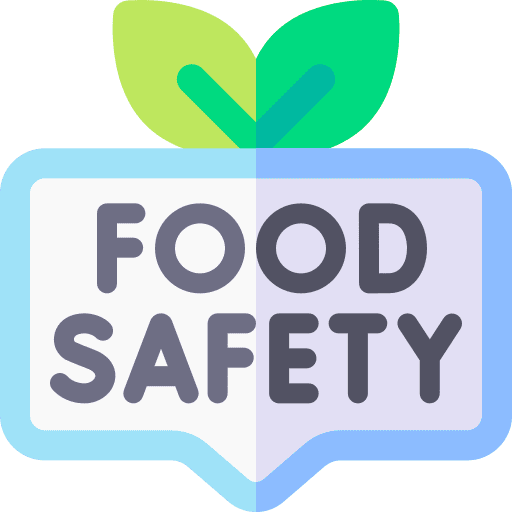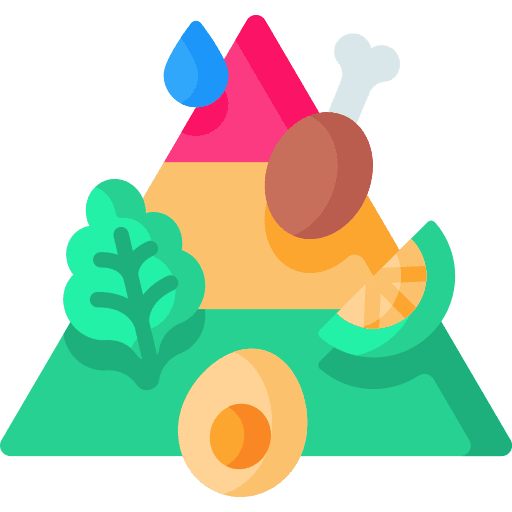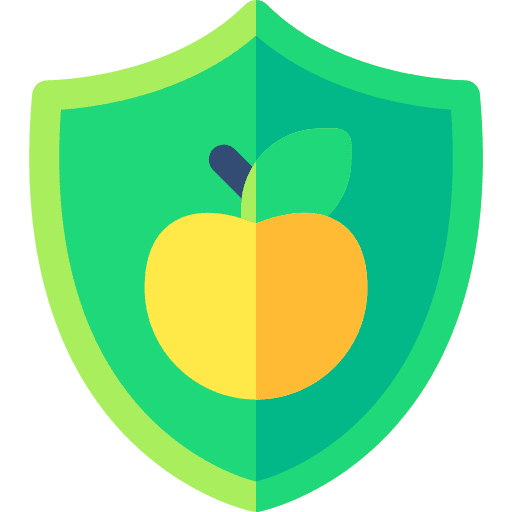Our Food Technology curriculum is crafted to equip students with essential culinary skills, nutritional knowledge, and an understanding of food science. The sequence of units below outlines a progressive learning journey, enabling students to develop their practical abilities, creativity, and confidence in the kitchen.
Year 7
Introduction to Food safety

Food safety is a crucial aspect of cooking and nutrition that ensures the food we eat is safe, healthy, and free from harmful bacteria and contaminants. In Year 7, we will explore the fundamental principles of food safety, including proper food handling, storage, and preparation techniques. Understanding how to maintain hygiene in the kitchen, recognise safe food practices, and prevent foodborne illnesses will empower you to make informed decisions in your cooking journey. By mastering these skills, you'll not only create delicious meals but also contribute to a safer eating environment for yourself and others.
Read MoreExploring Kitchen Equipment

In Year 7 Food and Nutrition, we will dive into the exciting world of kitchen equipment! Understanding how to use various tools and appliances is essential for successful cooking and baking. From measuring cups and mixing bowls to ovens and blenders, each piece of equipment serves a unique purpose in the kitchen. You’ll learn about the safe handling and proper maintenance of these tools, as well as techniques to maximise their effectiveness. By gaining confidence in using kitchen equipment, you'll be better equipped to create delicious dishes and develop your culinary skills.
Read MoreHealthy Eating

In Year 7 Food and Nutrition, we’ll explore the vital role that healthy eating and nutrition play in our overall well-being. Understanding how the food we consume affects our bodies is essential for making informed dietary choices. We’ll learn about the different food groups, the nutrients they provide, and how they contribute to growth, energy, and good health. By discovering the benefits of balanced meals and portion control, students will develop lifelong habits that support physical and mental health. Emphasising the importance of nutrition will empower you to make healthier choices, enhancing your performance in school, sports, and daily activities.
Read MoreSeasonality and the Food Journey

In Year 7 Food and Nutrition, we’ll embark on an exciting exploration of seasonality and the food journey from farm to table! Understanding when fruits and vegetables are in season helps us appreciate the flavours, nutrition, and sustainability of our food choices. We’ll learn how seasonal produce not only tastes better but also supports local farmers and reduces our environmental impact. By tracing the journey of food—from its origins in the fields to our plates—we’ll discover the importance of food production, transportation, and preservation. This knowledge will empower you to make informed decisions about the food you eat, fostering a deeper connection to the ingredients that nourish us.
Read MoreYear 8
The importance of Carbohydrates and their role in a healthy diet

By the end of this unit, students will understand the role of carbohydrates in the human diet, the different types of carbohydrates, their sources, functions, and their importance for overall health. Students will also learn how to identify carbohydrates in food and understand how they contribute to energy production and bodily functions.
Read MoreExploring Street Food: Culture, History, and Practical Recipes

By the end of this unit, students will:
1. Understand the concept of street food, its origins, and its global significance.
2. Recognize how street food reflects local culture, geography, and cuisine.
3. Develop practical skills by preparing simple street food dishes from different cultures.
4. Explore the importance of food safety in street food preparation and the challenges street food vendors face.
5. Evaluate the health aspects of street food and how to make balanced, nutritious choices.
Exploring Food Choices and the Impact of Ready Meals on Our Diet

By the end of this unit, students will:
1. Understand the factors influencing food choices (e.g., personal preferences, culture, convenience, cost).
2. Learn about the different types of ready meals available and their nutritional content.
3. Evaluate the health benefits and potential risks of consuming ready meals regularly.
4. Explore healthier alternatives to ready meals and how to make informed food choices.
5. Understand how ready meals fit into a balanced diet and the importance of food labels in making healthier decisions.
Year 9
Exploring Food from Around the World: Culinary Traditions, Ingredients, and Techniques

By the end of this unit, students will:
1. Gain an understanding of the diverse cuisines and food cultures around the world.
2. Learn about the key ingredients and cooking techniques used in different cuisines.
3. Understand the cultural, historical, and environmental influences on food in different regions.
4. Develop practical cooking skills by preparing dishes from various countries.
5. Reflect on the impact of globalization on food and how food cultures influence one another.
Fakeaways and the Problem with Takeaways: Healthy Alternatives to Fast Food

By the end of this unit, students will:
1. Understand the nutritional content and potential health risks associated with regular takeaway consumption.
2. Learn how to create healthy homemade alternatives to popular takeaway dishes (fakeaways).
3. Evaluate the impact of takeaways on health, cost, and the environment.
4. Understand how to modify recipes to make them healthier without compromising on taste and convenience.
5. Gain practical cooking skills by preparing fakeaway versions of takeaway favorites.
Year 10
Unit 1: Food, Nutrition, and Health

This unit covers the nutritional needs of individuals, the function of nutrients, and how diet affects health. It also includes key concepts like energy balance and special diets.
Read MoreUnit 2: Food Science

Focuses on how food behaves when it is cooked or processed. It covers concepts such as enzymes, pH, heat transfer, and food preservation methods.
Read MoreUnit 3: Food Safety

Covers food safety principles, including foodborne illnesses, food contamination, safe storage practices, and hygiene practices in the kitchen.
Read MoreUnit 4: Food Choice

Explores the factors influencing food choice, including cultural, social, ethical, and environmental considerations. It also covers trends like convenience food and global cuisines.
Read MoreUnit 5: Practical Skills

Focuses on the development of practical cooking skills and techniques to prepare dishes and menus. This includes knife skills, cooking methods, and presentation.
Read MoreUnit 6: Food Provenance

Focuses on the origin of food, its journey from farm to plate, and the factors that affect food production. It includes topics like food labelling, sustainability, and the global food trade.
Investigates emerging food trends, the role of food technology, and the impact of innovation on food production and preparation.
Year 11
NEA 1: Food Investigation

Knowledge of food science (e.g., enzymes, heat transfer, pH). Understanding basic cooking methods and their effects on ingredients. Knowledge of the functional properties of ingredients.
Read MoreNEA 2: Food Preparation

Knowledge of food preparation techniques and skills (e.g., knife skills, cooking methods). Ability to follow recipes and adapt for dietary needs. Familiarity with food safety and hygiene standards.
Read MoreFinal Evaluation & Assessment

Basic understanding of food evaluation criteria (e.g., taste, texture, presentation). Familiarity with writing reports and evaluations.
Read MoreExam Revision

Knowledge of all core topics (nutrition, food science, food safety, etc.). Basic understanding of the exam format and expectations.
Read More
